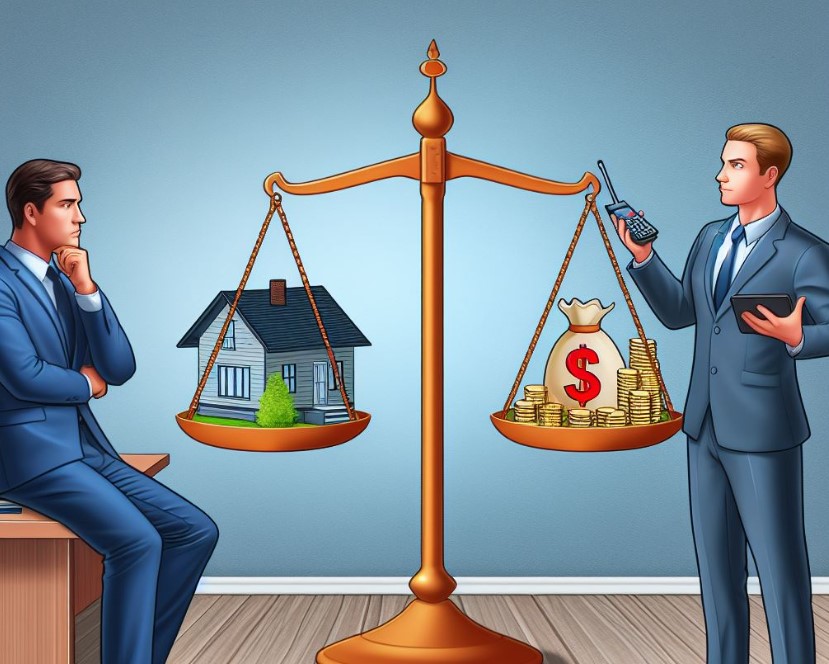When navigating the complex world of insurance claims, a pivotal question arises: Can You Trust Your Insurance Adjuster? This question is crucial, as insurance adjusters play a significant role in determining the outcome of your claim. Understanding their role, motivations, and obligations is key to a smooth claims process.
Key Takeaways
- Role and Responsibilities of Insurance Adjusters
- Assessing Adjuster’s Objectivity
- Navigating Potential Conflicts of Interest
- Effective Communication with Your Adjuster
- Legal and Ethical Considerations
- Seeking External Advice When Necessary
Can You Trust Your Insurance Adjuster?
It depends. Trust in your insurance adjuster hinges on their objectivity, professionalism, and the nature of their employment. Whether they are independent or work directly for an insurance company can influence their actions.

The Role of Insurance Adjusters
Insurance adjusters are professionals tasked with evaluating insurance claims. They assess the damage, determine claim validity, and suggest settlement amounts. Understanding their role is fundamental to gauge their reliability.
Objectivity of Adjusters
Objectivity is key in evaluating an adjuster’s trustworthiness. Adjusters employed by insurance companies may have inherent biases, whereas independent adjusters may offer a more neutral perspective.
Assessing Adjuster’s Objectivity
Objectivity in claims handling is paramount. An adjuster’s main aim should be to settle claims fairly and within policy guidelines. Evaluating their objectivity involves understanding their approach to claim assessment and settlement.
Signs of Bias or Unfair Practices
Be wary of signs that an adjuster is not acting in your best interest, such as undervaluing claims or unnecessary delays. These practices can indicate a lack of trustworthiness.
Conflicts of interest can arise when adjusters are pressured by insurance companies to minimize claim payouts. Recognizing these conflicts is crucial in assessing whether you can trust your adjuster.

Insurance Company Pressures
Adjusters working for insurance companies might face pressures to limit payouts, affecting their objectivity. This conflict of interest is an important consideration in trusting their decisions.
Independent Versus Company-Employed Adjusters
Independent adjusters often provide a more impartial evaluation of claims, as they are not directly employed by insurance companies. This distinction is vital in establishing trust.
Effective Communication with Your Adjuster
Effective communication is essential in building a trustful relationship with your adjuster. Clearly expressing your concerns and understanding their explanations are crucial steps.
Building a Professional Relationship
Establishing a professional relationship based on mutual respect and clear communication can enhance trust. Being informed and assertive, yet respectful, is key.
Tips for Clear and Effective Communication
Communicate clearly and keep records of all interactions. This transparency can build trust and ensure both parties are on the same page.
Legal and Ethical Considerations
Adjusters are bound by legal and ethical standards. Understanding these can provide insight into their trustworthiness.

Industry Regulations and Standards
The insurance industry is regulated, and adjusters must adhere to ethical standards. Familiarizing yourself with these can help you gauge the trustworthiness of your adjuster.
Ethical Obligations of Adjusters
Adjusters have an ethical obligation to handle claims fairly and impartially. Knowing these obligations can help in assessing their trustworthiness.
Seeking External Advice When Necessary
Sometimes, seeking external advice is necessary to ensure fair treatment. This can include consulting with legal experts or a public adjuster.
When to Seek External Advice
If you doubt the fairness of your claim’s handling, seeking external advice can be beneficial. This step can provide a different perspective and ensure your rights are protected.
Consulting Legal or Claim Experts
Legal or claim experts can offer valuable insight and advice, ensuring you are treated fairly and helping build trust in the process.
Are Insurance Adjusters Biased?
Insurance adjusters can exhibit bias, although it is not an inherent part of their role. Biases may arise when adjusters, especially those employed by insurance companies, face implicit pressure to minimize claim payouts. However, professional ethics and industry regulations require adjusters to be objective.

Independent adjusters are generally perceived as less biased due to their lack of direct affiliation with insurance companies. To mitigate bias, policyholders should be well-informed about their policy details and the claims process.
Do Insurance Adjusters Make Mistakes?
Yes, insurance adjusters can make mistakes. These errors can range from misinterpreting insurance policy terms to incorrectly assessing damage or claim value. Such mistakes can result from oversight, lack of information, or miscommunication.
Policyholders can reduce the impact of these errors by being proactive—providing comprehensive documentation, asking for clarifications, and if necessary, seeking a second opinion or review of the adjuster’s assessment.
What Are The Negatives For Using A Public Adjuster?
Using a public adjuster can have drawbacks. Firstly, they charge a fee, typically a percentage of the claim settlement, which can be significant. Public adjusters may also prolong the claims process as they conduct their own thorough assessments.

In some cases, if the adjuster is overly aggressive, it could strain the relationship between the policyholder and the insurance company. However, their expertise can be invaluable in complex claims, balancing these negatives.
Can I Trust My Homeowner’s Insurance Claims Adjuster?
Trusting your homeowner’s insurance claims adjuster largely depends on their professionalism, objectivity, and the way they handle your claim. An adjuster’s primary role is to assess the claim fairly and according to the policy terms.
Building a professional relationship, maintaining open communication, and understanding the claims process can foster trust. If concerns arise about the adjuster’s decisions or conduct, seeking a second opinion or legal advice can provide reassurance.
Conclusion
Determining whether you can trust your insurance adjuster involves understanding their role, assessing their objectivity, and being aware of potential conflicts of interest. Effective communication and knowledge of legal and ethical considerations are essential.
When in doubt, seeking external advice can provide clarity and ensure fairness. Remember, your trust in an insurance adjuster should be based on their professionalism, objectivity, and adherence to ethical standards. Can you trust your insurance adjuster? With the right approach and awareness, you can make an informed decision.
Frequently Asked Questions
Can an insurance adjuster refuse to pay my claim?
An insurance adjuster can refuse a claim if it’s not covered under the policy, if there’s insufficient evidence to support the claim, or if they suspect fraud. It’s crucial to understand your policy and provide all necessary documentation to support your claim.
Can I negotiate with my insurance adjuster?
Yes, you can negotiate with your insurance adjuster. If you feel the settlement offer is too low, present your reasoning and any supporting documentation. Negotiation is a common part of the claims process, and adjusters are often open to reasonable discussions to reach a fair settlement.
What are the ethical obligations of an insurance adjuster?
Insurance adjusters are ethically obligated to handle claims impartially and fairly. They must adhere to industry standards and regulations, avoid conflicts of interest, and provide honest and thorough assessments. Adjusters should also maintain confidentiality and provide clear communication throughout the claims process.
How do insurance adjusters determine the value of a claim?
Insurance adjusters determine the value of a claim based on the policy’s terms and the evidence presented, such as repair estimates, medical bills, or proof of loss. They consider factors like the extent of the damage, the cost of repairs, and any additional costs incurred by the policyholder.
What should I do if I disagree with my adjuster’s assessment?
If you disagree with your adjuster’s assessment, first discuss your concerns with them directly. Provide any additional evidence or documentation that supports your claim. If disagreements persist, consider seeking a second opinion from an independent adjuster or consult a legal expert specializing in insurance claims.
A multifaceted professional, Muhammad Daim seamlessly blends his expertise as an accountant at a local agency with his prowess in digital marketing. With a keen eye for financial details and a modern approach to online strategies, Daim offers invaluable financial advice rooted in years of experience. His unique combination of skills positions him at the intersection of traditional finance and the evolving digital landscape, making him a sought-after expert in both domains. Whether it’s navigating the intricacies of financial statements or crafting impactful digital marketing campaigns, Daim’s holistic approach ensures that his clients receive comprehensive solutions tailored to their needs.









